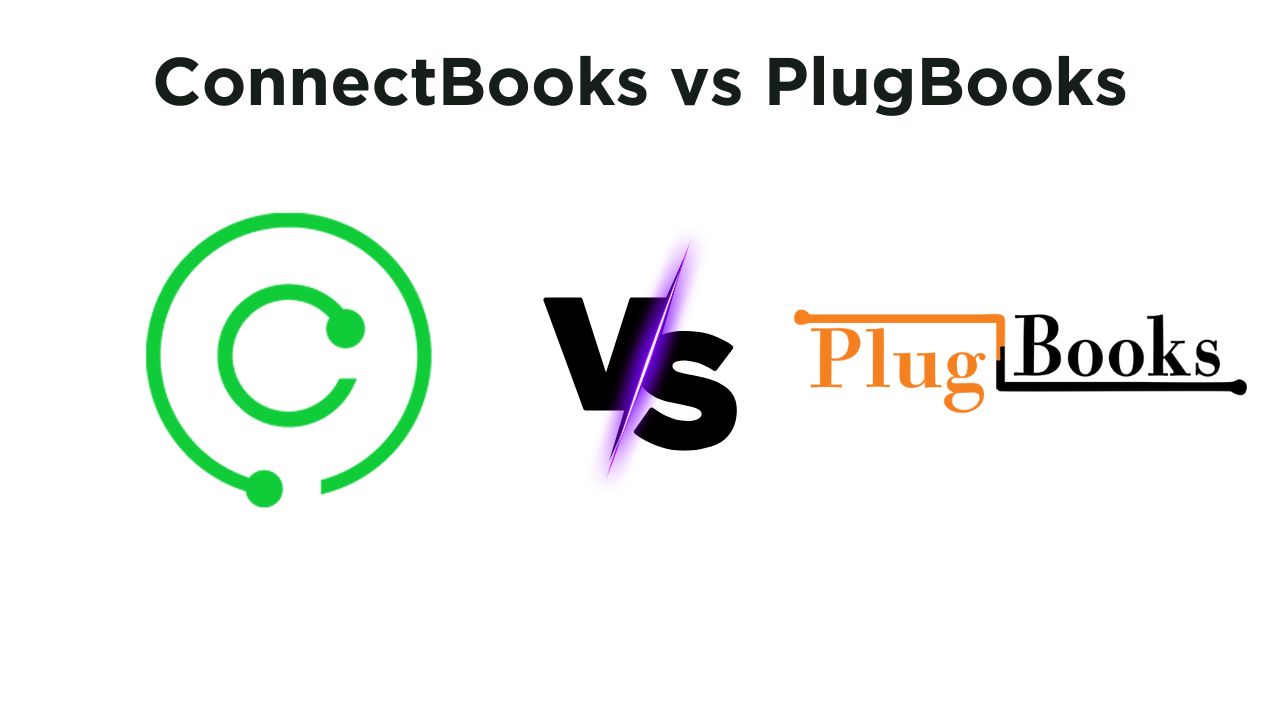If you’re in search of the best accounting automation tools, you’ve probably encountered Connectbooks vs Plugbooks. Both platforms offer unique features to streamline your accounting processes, but which one is better for your business? In this post, we’ll compare Connectbooks vs Plugbooks, breaking down their key features, pricing, and ease of use to help you make an informed decision.
Whether you’re a small business owner, an accountant, or an eCommerce entrepreneur, choosing the right accounting solution can save you time, reduce errors, and increase efficiency. Let’s dive into the details of Connectbooks vs Plugbooks and explore which one could be the right fit for your needs.
What is Connectbooks?
Connectbooks is an accounting automation platform designed to simplify the integration between various online sales platforms, accounting software, and marketplaces. It connects directly with eCommerce platforms like Amazon and Shopify, and syncs your transactions with accounting software such as QuickBooks. The goal of Connectbooks is to eliminate the manual data entry associated with bookkeeping and to provide a streamlined solution for businesses to manage their finances more efficiently.
Some key features of Connectbooks include:
- Automatic Transaction Syncing: It automatically syncs sales transactions from platforms like Amazon, eBay, and Shopify with QuickBooks.
- Tax Calculation: The tool helps calculate sales tax based on different jurisdictions, saving time during tax season.
- Multi-Channel Support: Connectbooks works with multiple eCommerce platforms, making it versatile for businesses that sell on different channels.
However, while Connectbooks does a good job automating transactions and syncing with accounting platforms, it may not offer the same level of flexibility or customization that some businesses need for more complex accounting workflows.
What is Plugbooks?
Plugbooks, on the other hand, is a powerful accounting automation tool designed specifically to integrate with a wide range of eCommerce platforms. Similar to Connectbooks, Plugbooks connects your sales data from platforms like Amazon, ebay and others with accounting software such as QuickBooks and Xero. The key differentiator of Plugbooks is its robust set of features tailored to businesses looking for more in-depth reporting, more flexible workflows, and better user customization.
Some notable features of Plugbooks include:
- Customizable Reporting: With Plugbooks, users can generate highly detailed financial reports tailored to their specific needs.
- Multi-Platform Support: Plugbooks integrates with multiple platforms, including Amazon, Shopify, and more, offering seamless data syncing.
- User-Friendly Interface: The platform provides an intuitive interface that makes it easy to navigate for users of all skill levels.
While Plugbooks offers a wider range of features compared to Connectbooks, it also provides the flexibility to scale with your business as it grows, which may be essential for rapidly expanding eCommerce businesses.
Connectbooks vs Plugbooks: Key Differences
Now that we have a basic understanding of both platforms, let’s compare the features of Connectbooks vs Plugbooks to see which one might suit your business needs:
1. Ease of Use
- Connectbooks: Known for its simple interface, Connectbooks is easy to use but might require a bit of time for setup, especially if you have multiple platforms to sync. Once it’s set up, however, it automates much of the bookkeeping process.
- Plugbooks: Offers a user-friendly experience and has more customizable features. Once you’ve configured your reporting needs, it’s incredibly flexible and automates All of the bookkeeping process.
2. Integration with eCommerce Platforms
- Plugbooks: Integrates well with popular eCommerce platforms like Amazon, and eBay. It’s a great choice for businesses that mainly sell on a few major platforms.
- Connectbooks: Has a broader range of integrations with eCommerce platforms, marketplaces, and even other accounting software like Xero. It’s perfect for businesses that use multiple sales channels and need deeper customization.
3. Reporting and Analytics
- Connectbooks: Provides basic financial reporting, but it doesn’t offer as much depth as some users might need for more detailed business analysis.
- Plugbooks: Plugbooks excels in this area by offering more advanced reporting features that can be tailored to your specific needs, helping you make data-driven decisions for your business.
4. Customer Support
- Connectbooks: Offers solid customer support, but its availability and responsiveness can vary depending on the plan you select.
- Plugbooks: Provides excellent customer support with a range of resources, including live chat, email support, and a helpful knowledge base to ensure that users get the assistance they need.
5. Pricing
- Connectbooks: Has competitive pricing, especially for businesses that are just starting out and need a simple solution to automate bookkeeping. It tends to be more budget-friendly for smaller operations.
- Plugbooks: Although slightly Lower in price, Plugbooks offers greater functionality and scalability for businesses that need advanced reporting, greater customization, and more integrations.

Which One is Right for You?
When comparing Connectbooks vs Plugbooks, it all comes down to your business needs.
- Choose Connectbooks if you need solution to automate your eCommerce accounting, especially if you sell on platforms like Amazon or Shopify and only require basic reporting features.
- Choose Plugbooks if you needan easy-to-use, affordable and more customizable solution with detailed reporting, multi-platform support, and scalability for your growing business.
Both platforms offer excellent features for automating your accounting, but Plugbooks may be the better choice if you need more flexibility, advanced reporting, and better scalability.
Conclusion
In the Connectbooks vs Plugbooks debate, both platforms offer unique advantages, and the right choice depends on your specific business needs. Whether you’re looking for simplicity and ease of use or advanced features and greater customization, both options can help streamline your eCommerce accounting. Take the time to assess your business requirements, and choose the platform that aligns best with your goals.




